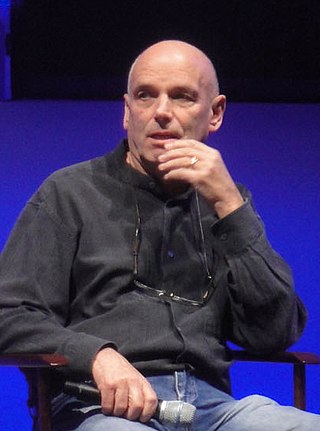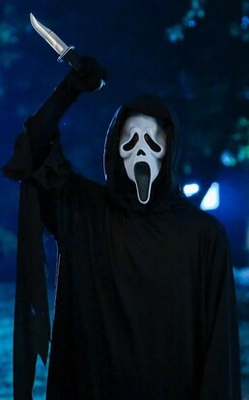See also
- List of edge cities
- Edge of the City , a 1957 American film
- The City's Edge , a 1983 Australian film
Edge City is a syndicated comic strip, begun in 2000.
Edge City also may refer to:
A rogue is a person or entity that flouts accepted norms of behavior or strikes out on an independent and possibly destructive path.
Network, networking and networked may refer to:
The Green Hornet is a superhero created in 1936 by George W. Trendle and Fran Striker, with input from radio director James Jewell.
Barney may refer to:
Bay City may refer to:

Kato is a fictional character from The Green Hornet franchise. This character has appeared with the Green Hornet in radio, film, television, book and comic book versions. Kato is the Green Hornet's crime-fighting sidekick, and Britt Reid's manservant in civilian life, and has been played by a number of actors. On radio, Kato was initially played by Raymond Hayashi, then Roland Parker who had the role for most of the run, and in the later years Mickey Tolan and Paul Carnegie. Keye Luke took the role in the movie serials, and in the television series, he was portrayed by Bruce Lee. Jay Chou played Kato in the 2011 Green Hornet film.
A mask is a covering worn on the face, or an object depicting a face.

The Mask of Zorro is a 1998 American Western swashbuckler film based on the fictional character Zorro by Johnston McCulley. It was directed by Martin Campbell and stars Antonio Banderas, Anthony Hopkins, Catherine Zeta-Jones, and Stuart Wilson. The film features the original Zorro, Don Diego de la Vega (Hopkins), escaping from prison to find his long-lost daughter (Zeta-Jones) and avenge the death of his wife at the hands of the corrupt governor Rafael Montero (Wilson). He is aided by his successor (Banderas), who is pursuing his own vendetta against the governor's right-hand man while falling in love with de la Vega's daughter.

Martin Campbell is a New Zealand film and television director, based in the United Kingdom. He is best known for his works in the action and thriller film genres, including the James Bond films GoldenEye (1995) and Casino Royale (2006), The Mask of Zorro (1998) and its sequel The Legend of Zorro (2005), Vertical Limit (2000), and The Foreigner (2017). Earlier in his career, he directed the critically-acclaimed BBC drama serial Edge of Darkness (1985), which earned him a British Academy Television Award for Best Drama Series. He later directed the 2010 theatrical film adaptation of the serial.

A parody advertisement is a fictional advertisement for a non-existent product, either done within another advertisement for an actual product, or done simply as parody of advertisements—used either as a way of ridiculing or drawing negative attention towards a real advertisement or such an advertisement's subject, or as a comedic device, such as in a comedy skit or sketch.
Steel is a metal alloy that is composed principally of iron and carbon.

The Mask is a 1994 American superhero comedy film directed by Chuck Russell and produced by Bob Engelman from a screenplay by Mike Werb and a story by Michael Fallon and Mark Verheiden. It is the first film in the Mask franchise, based on the comic book series of the same name by Mike Richardson, published by Dark Horse Comics. It stars Jim Carrey in the title role along with Peter Riegert, Peter Greene, Amy Yasbeck, Richard Jeni, and Cameron Diaz in her film debut. Carrey plays Stanley Ipkiss, an ordinary man who finds a magical wooden mask that transforms him into the titular green-faced troublemaker who can cartoonishly alter himself and his surroundings at will. Filming began on August 30, 1993, and concluded in October 1993.

Tiger Mask is a Japanese manga series written by Ikki Kajiwara and illustrated by Naoki Tsuji. The series was first published in Kodansha's Bokura Magazine from 1968 to 1970 and was later published in Weekly Shōnen Magazine from 1970 to 1971. It was later adapted into an anime series by Toei Animation which first aired on Yomiuri Television on October 2, 1969 and ended its run on September 30, 1971, airing 105 episodes. In real life, the name has been used by a succession of Japanese professional wrestling characters as a gimmick. The Tiger Mask persona is instantly recognizable by its trademark mask, designed to look like a tiger's head, as well as the combination of high flying attacks and martial arts in the ring.
Phantasm may refer to:
Arjun or Arjuna may refer to a person from Mahabharata

Ghostface is a fictional identity that is adopted by the primary antagonists of the Scream franchise. The figure was originally created by Kevin Williamson, and is primarily mute in person but voiced over the phone by Roger L. Jackson, regardless of who is behind the mask. The disguise has been adopted by various characters in the movies and in the third season of the television series.
Vanishing Point may refer to:

The Mask: Animated Series is an American animated television series based on the 1994 film of the same title. The series aired for a total of three seasons and fifty-four episodes from August 12, 1995, to August 30, 1997. It spawned its own short-run comic book series, Adventures of The Mask. John Arcudi, former writer of the original comics, wrote two episodes of the series. The Mask was one of three animated series based on Jim Carrey movies that premiered the same year. These included the 1995–2000 Ace Ventura: Pet Detective series, and the 1995–1996 Dumb and Dumber series.
Eliminator may refer to:
The Edge of Tomorrow or Edge of Tomorrow may refer to: